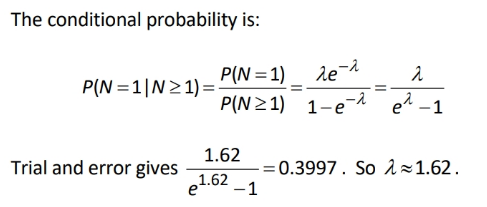I have come across a question in my notes and I do not understand how to solve it. I have looked at the solutions and I still am unclear!
And this is the solution:
I really don't understand what the question is really asking - would anyone be able to explain to me with an example? I also don't understand what the implication of the conditional probability is: e.g. the prob of 1 goal being scored given that 1 or more goals have already been scored? But then that should be independent?
Sorry - again, I am very confused and any help would be much appreciated!


